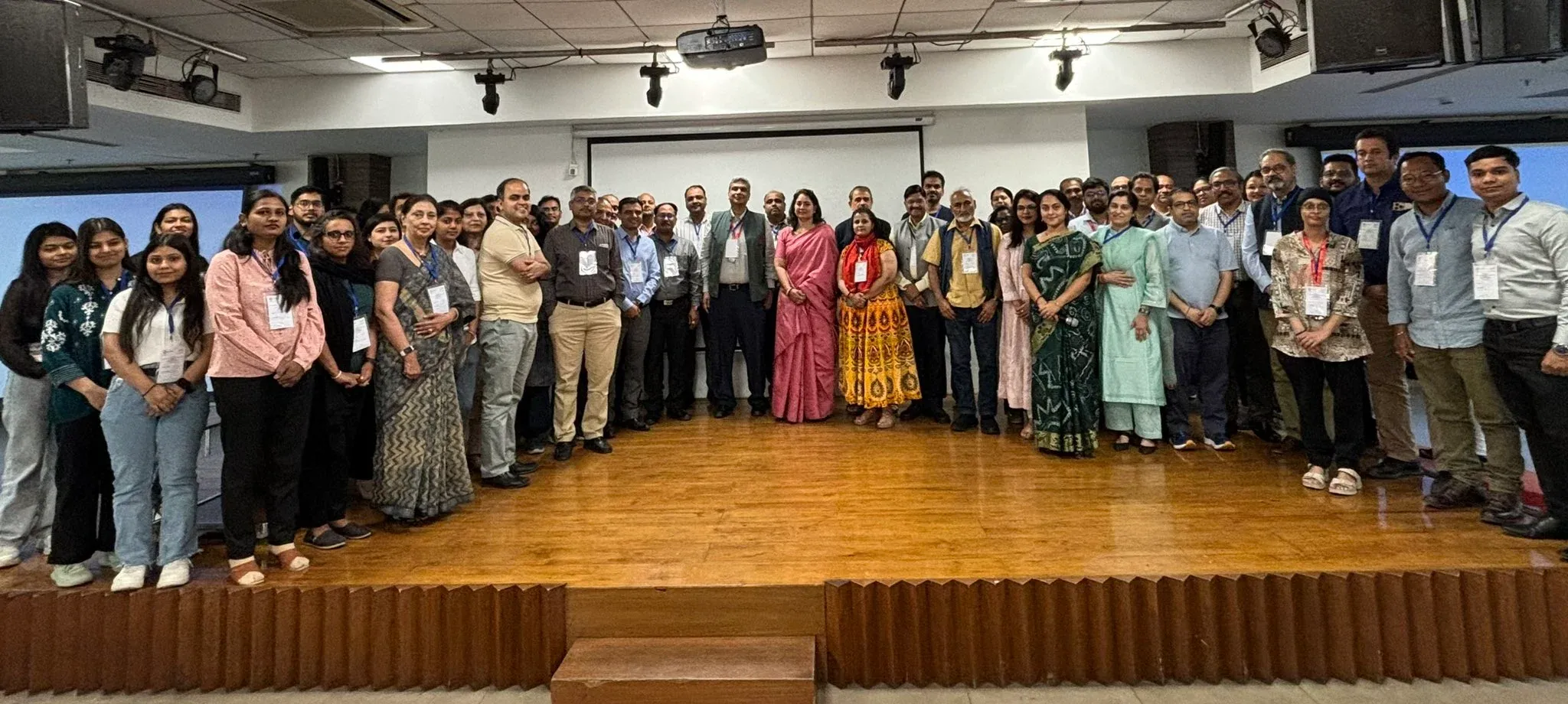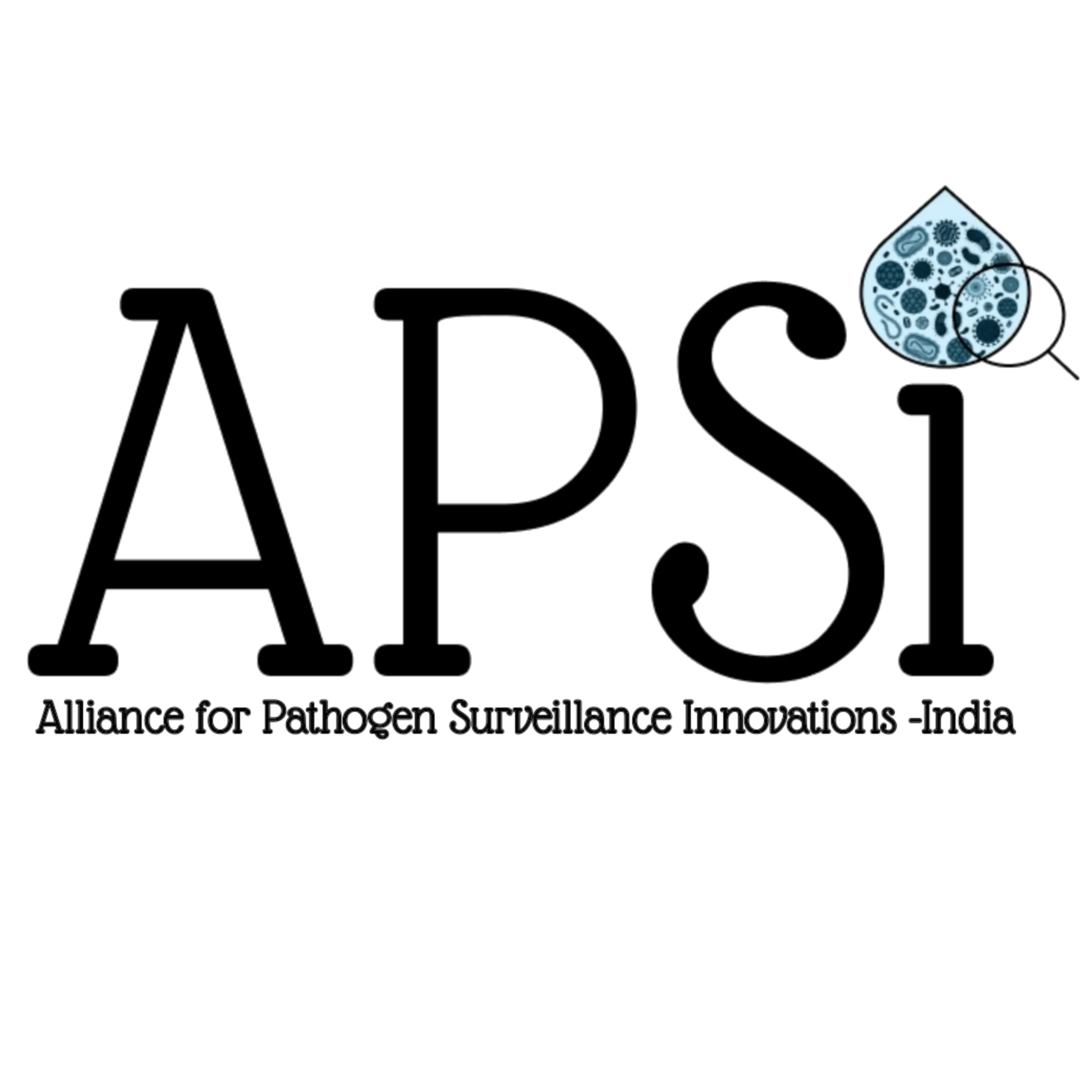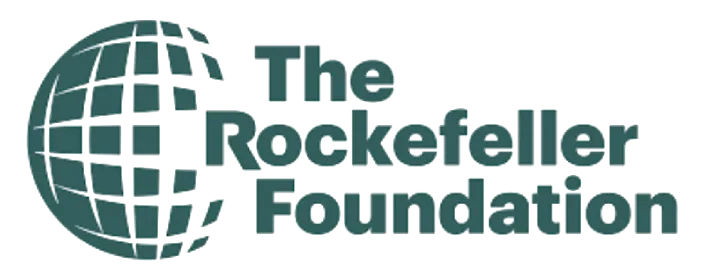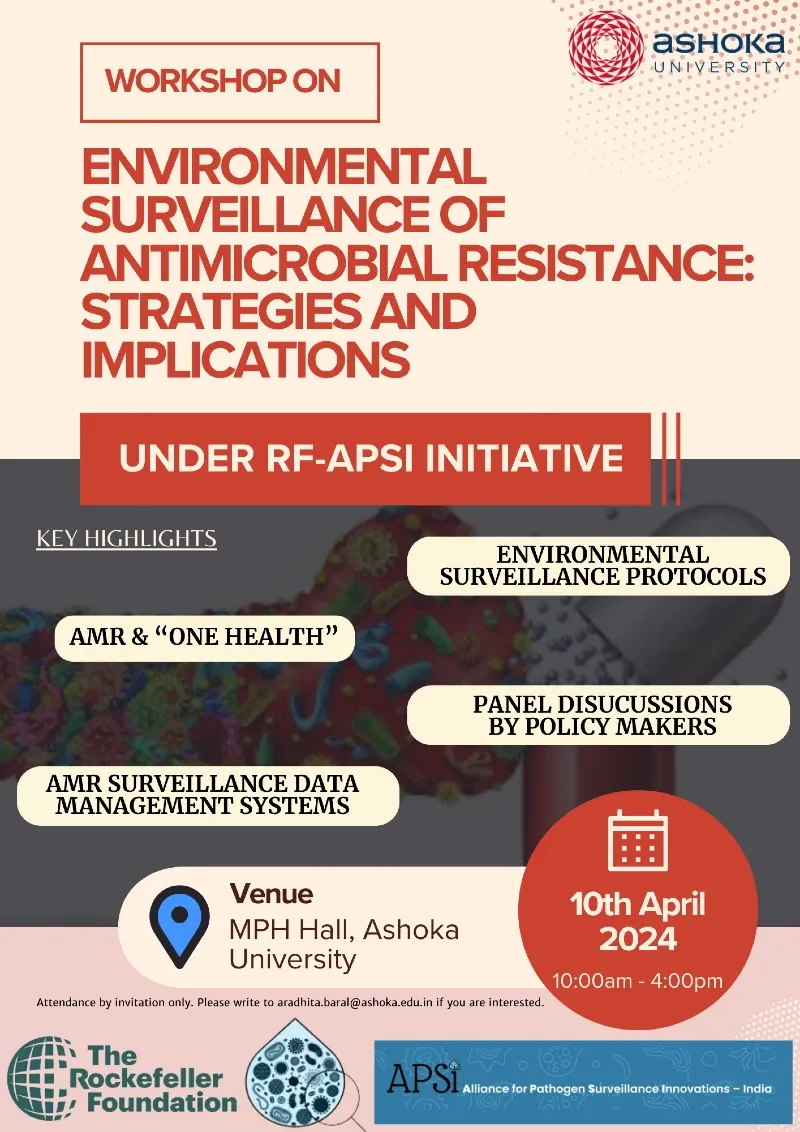
Antimicrobial resistance (AMR) stands as a critical global health concern, presenting a
significant threat. Low- and middle-income nations are particularly vulnerable, facing
substantial challenges to public health and causing a heavy economic burden.
Recent research has shed light on the impact of networks on the transmission of antimicrobial
resistance (AMR). These networks are propelled by interactions among various realms (such
as human health, animal husbandry, and veterinary medicine) and other factors, including
environmental influences. AMR is a silent ongoing pandemic and there is an earnest
necessity to check the resistance by enhancing our diagnostic tools, and surveillance capacity.
Amidst this backdrop, Ashoka University organized a workshop focused on wastewater
surveillance of AMR, aiming to shed light on this invisible yet formidable threat. This was
organized as part of a Rockefellar foundation funded program on surveillance of pathogen of
concern through the RF-APSI (Alliance for PAthogen Surveillance Innovation) consortium.
Originating amidst the COVID-19 crisis, the consortium swiftly mobilized academia,
establishing rtPCR centers and leading to collaborations. Stressing Public Health Policy's
primacy the RF-APSI consortium extends its focus to AMR, dengue, and influenza post-
COVID, emphasizing environmental surveillance's role, particularly in wastewater. Goals
include standard protocol development, capacity building, and nationwide enhancement.
Participants
The workshop brought together a diverse array of stakeholders, including researchers,
policymakers, public health experts, environmental scientists, and clinicians. AMR from
various angles.
The researchers from the RF-APSI (India) presented the various aspects of surveillance of
AMR and the impact in clinical and environmental set up. Protocols which can be used in
both labs and clinics were showcased.
Insights from Expert Speakers
Distinguished speakers at the workshop shared their expertise and insights on the subject
matter.
Prof. L. S. Shashidhara detailed the RF-APSI, efforts in AMR surveillance. Shashidhara
highlighted AMR's multi-faceted nature, extending beyond humans, necessitating
comprehensive action. Future plans include cost-effective kits and a streamlined dashboard
system, indicative of ongoing progress towards consortium objectives.
Prof. Anurag addressed the global impact of antimicrobial resistance (AMR) and advocated
for an integrated 'one health' approach to combat it. He highlighted how the historical surge
in antibiotic availability during economic booms has contributed to the development of
AMR, leading to challenges in antibiotic effectiveness and prolonged hospitalizations.
Emphasizing the importance of a 'one health' perspective, Prof. Anurag stressed the need for
comprehensive surveillance encompassing human, animal, and environmental factors. He
emphasized the importance of understanding underlying causes, developing interventions,
and advocating policy changes based on comprehensive surveillance data to effectively
address AMR.
Dr. Kamini Walia highlighted ICMR's pivotal role in combating AMR, stressing the
importance of environmental surveillance. She noted the 'golden age of antibiotics' and
subsequent rise of AMR, triggered by colistin resistance. ICMR labs track AMR trends,
revealing a concerning 40% increase in drug-resistant infections. Dr. Walia underscored the
rise of pathogens like ESBLs and CREs, necessitating urgent action. She raised concerns
about new agents' efficacy against these pathogens and suboptimal healthcare investments.
Environmental factors' role in AMR remains unclear, though sewage-based monitoring shows
promise. Dr. Walia advocated for predictive models based on resistance patterns and urged
for district-level antibiograms. She concluded on the nascent but crucial role of sewage
epidemiology in understanding AMR's environmental spread.
Dr. Anuj delved into WHO's efforts on AMR and environmental surveillance, highlighting
the importance of data-driven action. He emphasized AMR's global priority and its
multifaceted spread through bacteria in food, environment, and the human body. WHO's
quadripartite approach involves FAO, WHO, and UN, focusing on surveillance and
guidelines for wastewater management. He underscored the tricycle project's aim to integrate
surveillance across human, animal, and environmental sectors, crucial for understanding
AMR dynamics. Dr. Anuj flagged the significance of antimicrobial residues in pollution
control.
Major highlights of the workshop were
● Interdisciplinary Interactions: Participants engaged in robust discussions and
knowledge exchange across various disciplines, including medicine, veterinary
science, environmental science, and public health. This interdisciplinary approach
fostered a holistic understanding of AMR and underscored the importance of
collaborative efforts in combating this complex issue.
● Presentation of recent research findings and trends in environmental AMR
surveillance, and correlation of the AMR patterns across clinical and environmental
set up
● Discussions to determine the scope of surveillance activities, including target
organisms, sampling sites, and methodologies.
● Discussed challenges - inadequate surveillance and data collection; weak regulatory
frameworks; and limited access to affordable and quality healthcare services and
capacity building
● Panel discussion on Data Management Systems for AMR Surveillance Data,
Importance of Standardized Reporting Formats and Protocols, Utilizing Surveillance
Data for Decision-making and Policy Development
Interactive Sessions and Knowledge Exchange
Interactive sessions and panel discussions provided a platform for participants to exchange
ideas, share best practices, and explore potential solutions. These sessions facilitated cross-
disciplinary dialogue and encouraged innovative approaches to addressing AMR challenges
in wastewater systems.
Acknowledgments: Abha Tiwari, Project Manager, Ashoka University
Written by Dr. Aradhita Baral
Sr. Program Manager
RF-APSI, Delhi Cluster
Ashoka University



